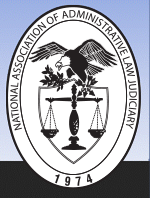First Page
484
Abstract
This comment aims to focus on the most frequently used connector that consumers treasure not only for convenience but also as a lifelong necessity - the smartphone. The FTC needs to enforce federally mandated guidelines that will allow the consumer to use technology without the technology using the consumer. Part II of this comment focuses on the type of information that can be collected by various companies, service providers, and agencies from an individual's smartphone, and the intentions of these collectors behind use of this information. Part III evaluates how applications (apps) contribute to this scheme, and, specifically, apps' recordkeeping role in direct marketing, advertising initiatives, and user location tracking. Part IV reiterates a consumer's reasonable expectation of privacy under Katz v. United States, its developing application to technological changes, and delves further into the two most recent cases brought by the FTC: HTC America, Inc. and United States v. Path, Inc. Part V discusses the various actors that are currently engaged in implementation of regulation strategies in an effort to balance the need for government intervention against excessive government control. Part VI concludes by suggesting that there is an urgent need for the FTC to implement concrete regulations to clearly identify and protect impermissible accessible data from consumer smartphones.
Recommended Citation
Ashton McKinnon,
Sacrificing Privacy for Convenience: The Need for Stricter FTC Regulations in an Age of Smartphone Surveillance,
34 J. Nat’l Ass’n Admin. L. Judiciary
484
(2014)
Available at:
https://digitalcommons.pepperdine.edu/naalj/vol34/iss2/6
Included in
Administrative Law Commons, Consumer Protection Law Commons, Privacy Law Commons, Science and Technology Law Commons

